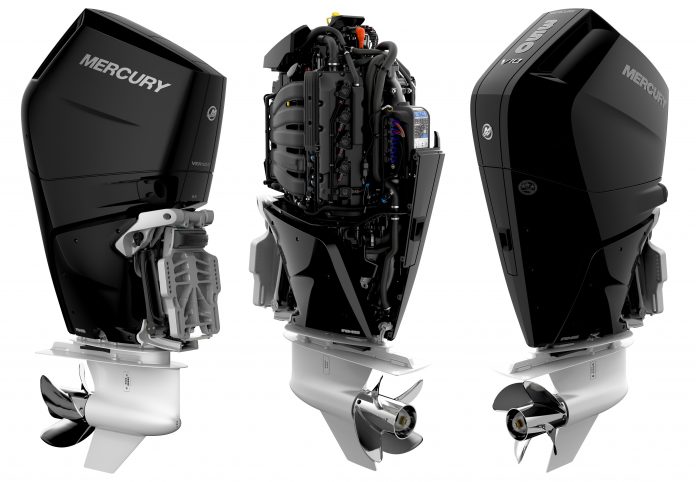
The initial models launched by Mercury Marine are the 350 and 400-hp versions.
By Gregg Mansfield
Mercury Marine unveiled its first V10 outboard motors on Tuesday, introducing the 350 and 400 horsepower Verado models during a media event in Orlando, Florida.
The new outboards will take the place of Mercury Marine’s current 350 and 400 hp offerings, bridging the gap between the company’s V8 and V12 outboard ranges. According to Mercury, these new V10 engines are the quietest and most refined in their class, operating 45% quieter than a leading competitor at cruising speeds.
A standout optional feature will be a dual-mode 48V/12V alternator designed to integrate seamlessly with Navico Group’s Fathom® e-power system. The built-in lithium-ion auxiliary power management system lets boaters forgo an onboard generator.
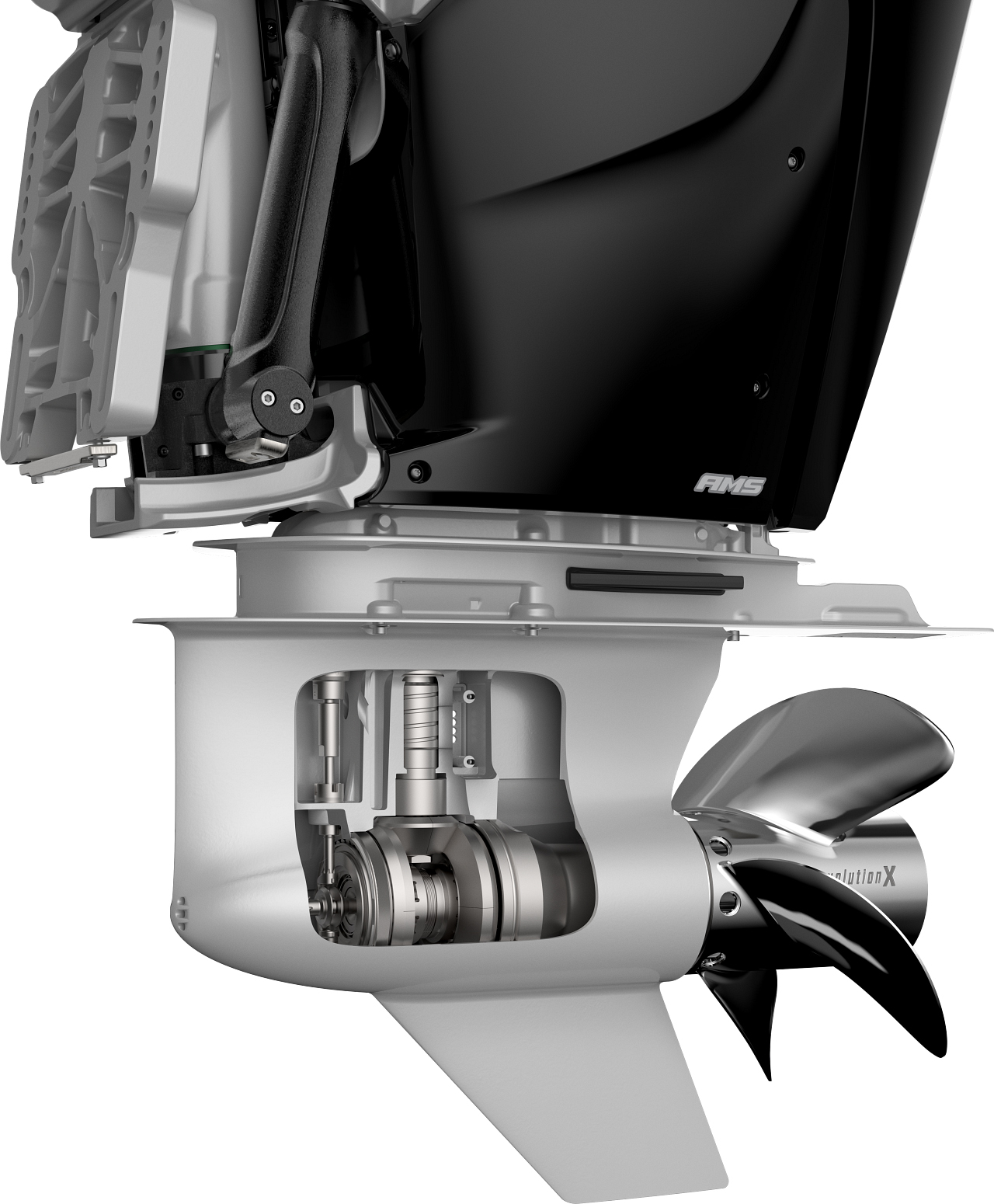 “We addressed the gap that consumers were seeking—higher displacement and naturally aspirated,” stated Chris Drees, president of Mercury Marine, after a media presentation at Coronado Springs Resort in Orlando, Florida. “The 350 and 400 horsepower segment is crucial in the marine market.”
“We addressed the gap that consumers were seeking—higher displacement and naturally aspirated,” stated Chris Drees, president of Mercury Marine, after a media presentation at Coronado Springs Resort in Orlando, Florida. “The 350 and 400 horsepower segment is crucial in the marine market.”
Having been in development for over three years, the new V10 outboards bring together a combination of updated and innovative technologies. These features include a larger gearcase, increased propeller size, an upgraded alternator, and longer service intervals.
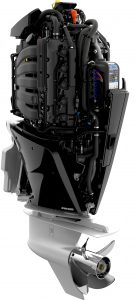 Due to enhanced efficiency and reduced weight, Mercury Marine indicated that the new outboards can be utilized on everything from center consoles to high-performance vessels.
Due to enhanced efficiency and reduced weight, Mercury Marine indicated that the new outboards can be utilized on everything from center consoles to high-performance vessels.
Tim Reid, Mercury’s vice president of product development and engineering, mentioned that designers began with a clean slate while applying insights from the V8 and V12 platforms developed previously.
“If we had adapted the V12 concept, it would have definitely been heavier and incorporated aspects that some consumers were neither interested in nor willing to spend more on,” Reid commented after the media dinner. “We are very conscious of ensuring we deliver the right features that fulfill customer expectations.”
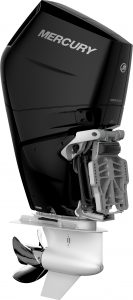 With a weight of 695 pounds and retaining the same 26-inch mount spacing as the V8 outboards, the V10 motors enhance compatibility with existing boat designs.
With a weight of 695 pounds and retaining the same 26-inch mount spacing as the V8 outboards, the V10 motors enhance compatibility with existing boat designs.
This new platform showcases the industry’s first naturally aspirated V10 powerhead, featuring a 5.7L displacement and a performance-inspired quad-cam design that drives boats. A top-tier 150-amp alternator rapidly charges onboard batteries and adeptly manages the boat’s electrical system.
The brand-new hydrodynamic gearcase is crafted to boost performance and resilience across various applications while optimizing fuel efficiency.
The newly designed Revolution X propeller complements the V10 Verado. Its larger diameter and broader blades, combined with the deeper gearcase ratio, ensure superb handling and efficiency from low speeds to full throttle.
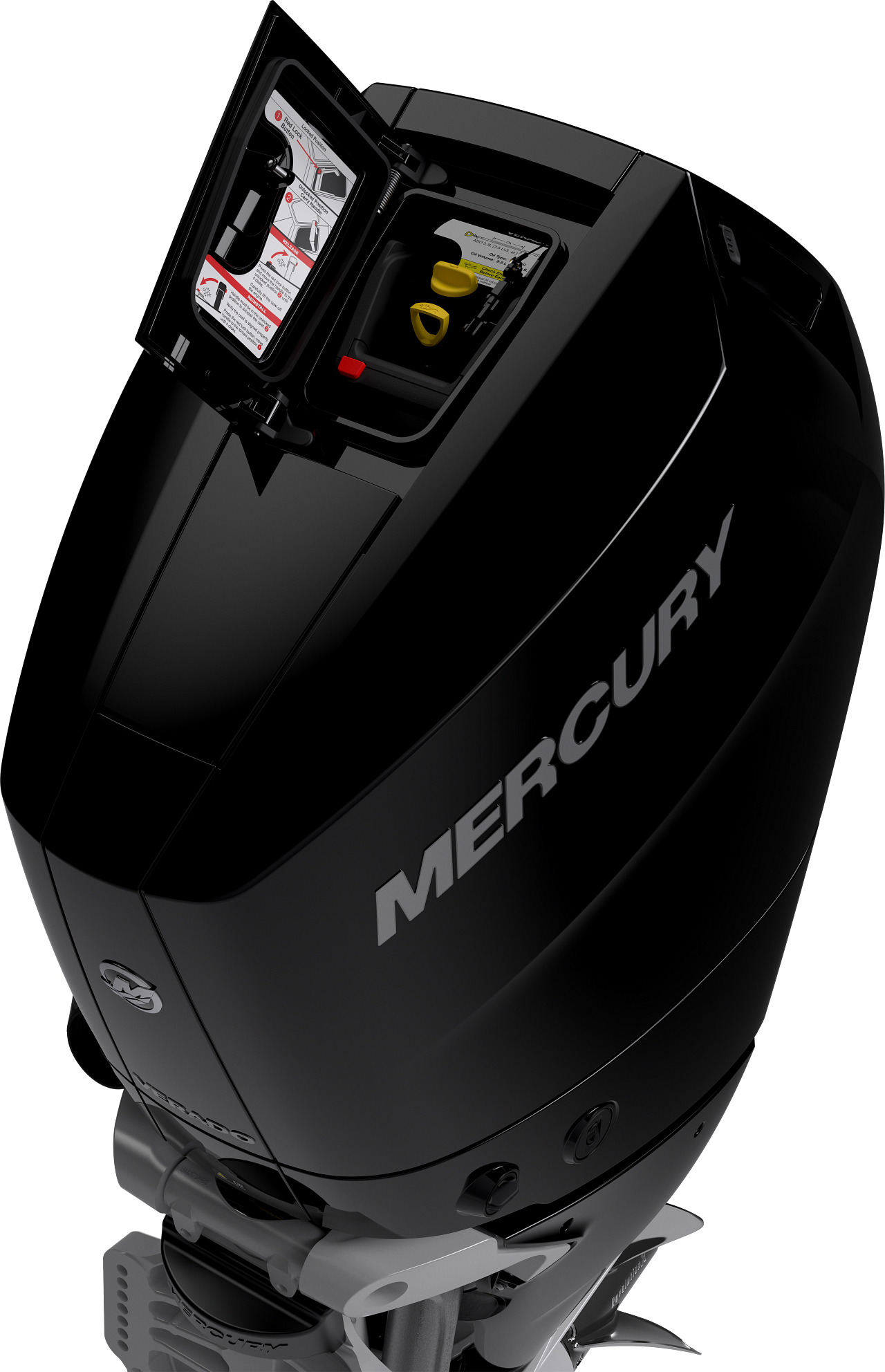 Engineered to deliver optimal performance using 87-octane fuel, these outboards incorporate technologies aimed at enhancing efficiency, including a closed-loop fuel system and Advanced Range Optimization (ARO).
Engineered to deliver optimal performance using 87-octane fuel, these outboards incorporate technologies aimed at enhancing efficiency, including a closed-loop fuel system and Advanced Range Optimization (ARO).
Adaptive Speed Control allows the engine to maintain its rpm even with variations in load or conditions, making it easier to navigate steep swells and ensuring smoother low-speed cruising. Transient Spark Technology adjusts spark timing electronically to enhance low-end power.
The V10 Verado engines will also be compatible with a new electric steering system from Mercury Marine for multi-outboard vessels set to begin shipping in February 2023. This system will provide improved steering responsiveness, significantly simplified rigging, and a reduction of over 50% in energy consumption.
“We truly appreciate this larger displacement, naturally aspirated format. It delivers exceptional torque, high rpm, and flexibility, but it remains relatively uncomplicated,” remarked Brunswick CEO David M. Foulkes. “Using a V8 may necessitate boosting it, which complicates and increases the cost. Conversely, a V12 is too heavy for the V10 market. We evaluated various options, but ultimately decided that the V10 was ideal regarding weight, compactness, affordability, and simplicity.”